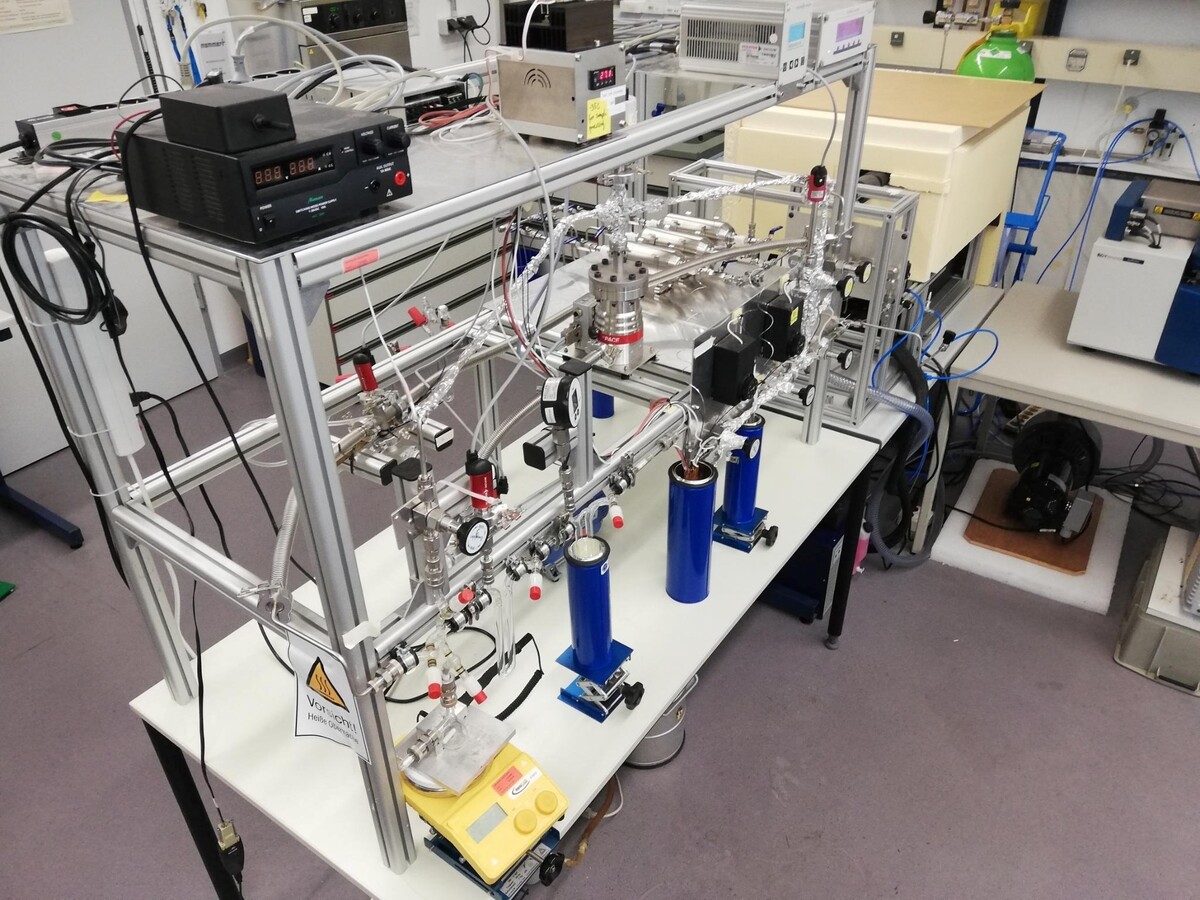Tuneable Infrared Laser Dual Absorption Spectroscopy (TILDAS) for CO2 Clumped Isotopes
The laboratory is equipped with a TILDAS system (TILDAS-FD-L2, Aerodyne) that is able to measure the CO2 isotopologues 12C16O16O, 13C16O16O, 13C18O18O, 12C18O16O and 12C17O16O within two selected frequency windows at high precision. The sample gas is diluted in pure nitrogen to reduce the necessary sample size. Consecutive measurements of sample and reference gas allow the determination of δ13C, δ18O and with a secondary calibration ∆638 (comparable to ∆47 in mass spectrometry). The instrument also holds the potential for analysis of δ17O. The advantage of the TILDAS system is the fast analysis with about 30 minutes per replicate analysis for ∆638 and a simplified sample processing.
Currently, 10 mg of carbonate is required per replicate analysis. The carbonate sample is reacted with phosphoric acid at 90°C and the evolving CO2 gas subsequently purified (Weise and Kluge, 2020). Together with the sample we measure in-house standards (Cararra marble, Merck CaCO3, Merck Li2CO3) and the accepted ETH standards (ETH1-4).
CO2 clumped isotope analysis can be applied to research questions in the field of carbonate thermometry, palaeothermometry, mineral formation studies and hydrothermal system assessment, CO2 source identification, paleo-biology, tectonic studies and beyond.

